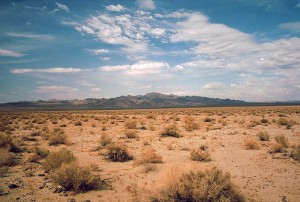Deserts, Interstices, and New Life
“Dryness promotes the formation of flower buds . . . [f]lowering is, after all, not an aesthetic contribution, but a survival mechanism.” – Ann Haymond Zwinger, The Mysterious Lands (New York: Dutton, 1989), 127.
“‘You can’t repeat the past.’ ‘Can’t repeat the past?’ he cried incredulously. ‘Why of course you can!'” – F. Scott Fitzgerald, The Great Gatsby (New York: Simon & Schuster, 2003), 110.
This, my friends, is what we call an autobiographical post. Philosophy-cum-introspection: theoria-via-experience. Ordinarily I prefer intertexuality, engaging a recently-read chapter or article, to the daunting expanse of the tabula rasa on which one ‘free styles’ their way into writing. Ordinarily, however, I am not getting married, moving to a new (old) country, and driving up and down the coast for family events before the start of a doctoral program. (Ordinarily, I am just plain undisciplined).
We have moved—literally and figuratively—to the desert. Our beachside locale reaches temperatures unthinkable to the PacNoWest mind this time of year, and the sunshine is unceasing. It is fantastic, but the contrarian in me misses the evergreens and the grey sky. New friendships have yet to blossom; we feel removed from the lush rainforest of Regent College social life. My mind too is a desert—a dry, austere place, withdrawn from the cacophonic buzz of the arguments put forth by authors and interlocutors in the background of my consciousness. Instead, I am syphoning this post from the silent ether.
To the chagrin of the mind-body dualists in the audience, we regret to inform you that Maslow’s hierarchy of needs proves resoundingly true. When one attempts intellection amidst a pseudo-nomadic, half-unpacked lifestyle, one quickly realizes that one’s own material conditions trump the best of intentions for contemplative reflection. How can you read when your books are in boxes, when your furniture is at the store, when ‘dinner’ is the onto-linguistic aporia most pressing to resolve? (Maslow says you can’t. [1] So does experience.[2] And, peripherally, so does Josef Pieper, famous for his critique of the ‘total labor’ of modern bourgeois society, a cult of work that negates the possibility of contemplation and culture-making. He is, perhaps, the antidote to Weber’s protestant work ethic).
We’re slowly moving out of the interstice, the unexpected way station between life as we knew it and life as it will come to be known when we are settled in. We will unpack all of our boxes, learn our new routines, and let our nostalgia slowly be replaced with an attention to the topological wonders now before us. Clamoring to preserve the old will only prevent the flowering of the new. Gratitude and attention; these are how you learn to love a place.
“The deacon ought to be like the Cherubim and the Seraphim: all eye.” – Barsanuphius, “Letter 242,” in Barsanuphius and John, Letters Volume 1, trans. John Chryssavgis, The Fathers of the Church 113 (Washington, D.C.: Catholic University Press, 2006), 249.
[1] Development economists and cultural historians have (probably) long since incorporated and then discarded Maslow’s hierarchy into their much more expert assessments of global inequality, though the principle at work, e.g., that physiology comes before the “self-actualization” of creativity etc., seems fecund with insights for future academic work.
[2] That one’s material conditions would so affect one’s cognitive-creative output confirms, for me, the claims of some feminist critics about the qualitative differences between men and women. It is here that I enter the war-zone of gender essentialism, so I will not tarry long, other than to say that it seems increasingly common-sensical to me that nursing mothers and full-time parents would find it challenging to produce, for example, a novel, a theological tome, or a scientific breakthrough, but that this is less a cause for lament than for applauding the work of basic human life.
Eva
Latest posts by Eva (see all)
- Deserts, Interstices, and New Life - September 17, 2013
- In Which I Pose A Series of Unanswered, Haunting Questions about Gender - August 26, 2013
- The Poet and the Philosopher: Enemies or Allies? - June 18, 2013

